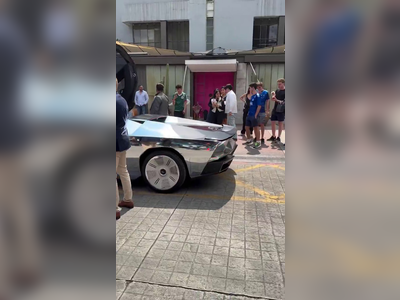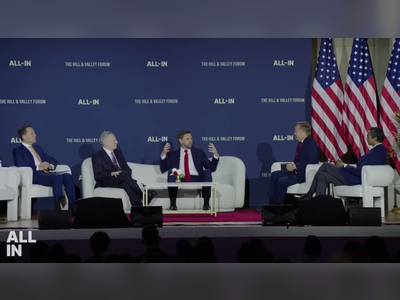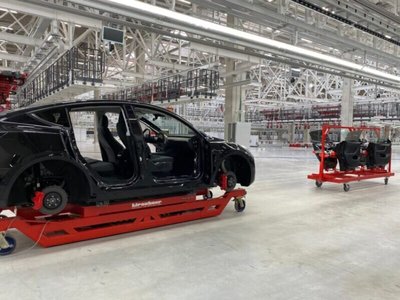
Jensen Huang, co-founder and CEO of NVIDIA, recently underscored the significance of artificial intelligence (AI) in the evolution of industrial companies
In a discussion concerning the advancements led by Tesla, he remarked on Elon Musk's pioneering vision regarding AI's role in the automotive industry.
Huang noted that Tesla operates two factories and has recognized the necessity of establishing an AI factory to support its vehicles, which increasingly rely on AI technologies for various functionalities.
This perspective aligns with a growing trend across industries where companies integrate AI into their operations.
As noted by industry experts, the incorporation of AI is becoming essential for industrial companies to maintain competitiveness.
It is noted that organizations that fail to adopt AI technologies may find themselves at a disadvantage in the rapidly transforming industrial landscape.
The conversation around AI factories is a reflection of the broader economic implications of integrating AI into manufacturing and operational processes.
Many firms, beyond the automotive sector, are exploring AI solutions to enhance efficiency, reduce costs, and innovate products.
The evolution of manufacturing towards more intelligent systems is shaping the future of production, with AI playing a crucial role in decision-making and automation processes.
As the economic landscape shifts, the emphasis on AI integration is also prompting discussions on workforce implications.
Companies are beginning to reassess skill requirements as AI technologies advance.
This trend raises important considerations for workforce development and education as industries adapt to include AI-driven methodologies.
Overall, Huang's comments serve as a testament to the ongoing transformation in the industrial sector, where the presence of AI technologies is becoming synonymous with operational success and future viability.
This perspective aligns with a growing trend across industries where companies integrate AI into their operations.
As noted by industry experts, the incorporation of AI is becoming essential for industrial companies to maintain competitiveness.
It is noted that organizations that fail to adopt AI technologies may find themselves at a disadvantage in the rapidly transforming industrial landscape.
The conversation around AI factories is a reflection of the broader economic implications of integrating AI into manufacturing and operational processes.
Many firms, beyond the automotive sector, are exploring AI solutions to enhance efficiency, reduce costs, and innovate products.
The evolution of manufacturing towards more intelligent systems is shaping the future of production, with AI playing a crucial role in decision-making and automation processes.
As the economic landscape shifts, the emphasis on AI integration is also prompting discussions on workforce implications.
Companies are beginning to reassess skill requirements as AI technologies advance.
This trend raises important considerations for workforce development and education as industries adapt to include AI-driven methodologies.
Overall, Huang's comments serve as a testament to the ongoing transformation in the industrial sector, where the presence of AI technologies is becoming synonymous with operational success and future viability.











